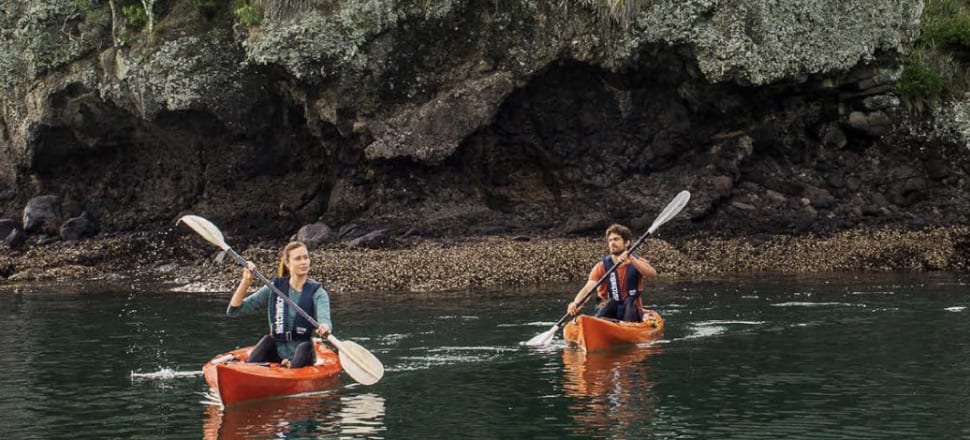
Bold, game-changing moves are needed to help the tourism industry bounce back after Covid lockdowns and face the impacts of climate change
Opinion: An exceptional alignment has emerged across public and private sectors over the past four years, recognising the enormous challenges confronting the tourism industry in Aotearoa and the need for urgent system-wide transformation.
It has also become clear the level of transformation required cannot be achieved within the structure of our existing tourism system.
Bringing together the public and private sectors in a Tourism Commission could be the change needed to reinvigorate the industry in a post-Covid world.
It would have a primary focus on ensuring all the diverse parts of our tourism system – including the legislative framework and management of key relationships with the Department of Conservation, Waka Kotahi, Local Government and private sector investors such as hotels, airports, and airlines who have massive capital invested in the industry – are strongly aligned.
Industry leader and strategist Glenys Coughlan shared this idea at a University of Otago Tourism Policy School, which explored ways to reshape the tourism sector to advance transformational change.
The annual, two-day event was attended by industry leaders, policy makers and researchers to discuss key challenges and opportunities in the New Zealand tourism industry.
READ MORE:
* Tourists flock to scenic south
* Ewe-topia or bust: Sunny visions of tourism to come
* Time to rebrand tourism as a long-term career
Coughlan noted the Tourism Futures Taskforce interim report (December 2020), ‘We are Aotearoa’, was inspiring and ambitious, providing a strategic framework for transformation that was widely applauded.
Tourism Minister Peeni Henare reiterated the urgent need to “break away from the high-volume model of tourism we had in 2019, and to re-focus in our tourism recovery on a more values-driven model”.
The tourism system in Aotearoa is designed to manage and market tourism but is not capable of advancing the system-wide transformational change called for in this, and other, widely supported proposals for ‘resetting’ tourism.
“We need to accelerate the pace of change, and neither government nor industry can do that on their own, nor can the level of transformation required be achieved within the existing tourism system,” Coughlan argued.
Transformational sector change has even proved to lie beyond the reach of individual government ministries working with key organisations.
We believe a Tourism Commission – a new public-private partnership model that reflects the successful inter-sector collaborative approach of the Tourism Futures Taskforce and Aotearoa Circle – is urgently required.
The new entity, which could be modelled on the Infrastructure Commission, needs to involve public and private sectors, as neither can transform the tourism system on their own.
A Tourism Commission would be charged with shaping, aligning, and facilitating the effort and resources needed to guide tourism development in ways that address the multi-layered and complex challenges our industry is increasingly required to confront.
Transformation also needs to be reflected in Tourism New Zealand initiatives, which should seek to promote Aotearoa as a destination underpinned by regenerative tourism principles and te ao Māori, and genuinely committed to fostering community wellbeing.
New Zealand is well positioned to demonstrate global leadership in tourism system transformation. The unprecedented alignment of key stakeholders has confirmed the challenges we confront and the need for urgent, system-wide change. This change will not only help address challenges, but also presents spillover opportunities and benefits across many other sectors, such as the technology and export economies.
Coughlan acknowledged that though the tourism industry is still in the early stages of recovering from the pandemic, we are now staring down the barrel of climate change.
This was supported by the recently released IPCC’s Sixth Assessment Report which identifies the tourism and travel industry as one of the key global economy sectors that is highly vulnerable to the impacts of climate change.
The need for systematic change was echoed by other delegates at the Tourism Policy School event, as they discussed how significant resources and effort have been invested in recent years into strategies for reshaping the future of tourism in New Zealand.
Delegates also called for Aotearoa to actively foster forms of tourism that enhance community thriving and wellbeing.
Tourism Minister Peeni Henare reiterated the urgent need to “break away from the high-volume model of tourism we had in 2019, and to re-focus in our tourism recovery on a more values-driven model”.
Tourism Industry Transformation Plan Environment Co-Chair Laurissa Cooney, who launched The Aotearoa Circle’s Tourism Climate Change Scenarios, forecast three possible futures for the tourism sector based on the country’s climate action.
All three scenarios highlight the fact we must collectively do everything we can to keep below 1.5C of warming.
The scale of the challenges we face in the future will be determined by how quickly and proactively we respond now.
There is too much at risk, and too much to be gained, by contemplating the future of tourism without being equipped to drive and support the scale and scope of transformational change that will be needed to rebuild our tourism system.
But efforts to transform tourism to meet the challenges of the 21st Century have been unsuccessful to date. Tourism is a disparate sector that spans many national and regional organisations, ministries, agencies, and businesses involved with the management and marketing of tourism.
Thus far, this diversity of actors has posed significant challenges to coordinated efforts to advance systemic change.
In the words of Coughlan: “It’s no longer about a few game-changing initiatives by innovative operators or regions, it is time to change the whole game if tourism is to make a net positive contribution across all wellbeing dimensions – environmental, economic, social and cultural.”







